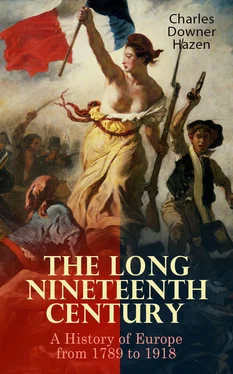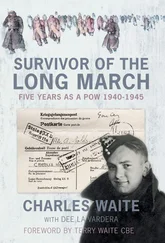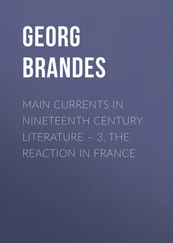The organs of government, national and local, were remodeled by the adoption of forms and methods known to Sweden, Germany, and other countries, and the state became more efficient and at the same time more powerful. The army was enlarged, equipped, and trained mainly in imitation of Germany. A navy was created and the importance of the sea to the general life of the nation gradually dawned upon the popular intelligence. The economic development of the country was begun, factories were established, mines were opened, and canals were cut. The church was brought into closer subjection to the state. Measures were taken against vagabondage and robbery, widely prevalent evils. Education of a practical sort was encouraged. The Julian calendar was introduced and is still in force, though the other nations of Europe have since adopted another and more accurate chronology. Peter even undertook to reform the language of Russia, striking out eight of the more cumbersome letters of the alphabet and simplifying the form of some of the others.
All these changes encountered resistance, resistance born of indolence, of natural conservatism, of religious scruples - was it not impious for Holy Russia to abandon her native customs and to imitate the heretics of the West? But Peter went on smashing his way through as best he could, crushing opposition by fair means and by foul, for the quality of the means was a matter of indifference to him, if only they were successful. Here we have the spectacle of a man who, himself a semi-barbarian, was bent upon civilizing men more barbarous than he.
As the ancient capital, Moscow, was the stronghold of stiff conservatism, was wedded to the old ideas and customs, Peter resolved to build a new capital on the Baltic. There, on islands and marshes at the mouth of a river which frequently overflowed, he built at frightful cost in human life and suffering the city of St. Petersburg. Everything had to be created literally from the ground up. Forests of piles had to be driven into the slime to the solid earth beneath to furnish the secure foundations. Tens of thousands of soldiers and peasants were drafted for the work. At first they had no implements, but were forced to dig with sticks and carry the rubbish away in their coats. No adequate provisions were made for them; they slept unprotected in the open air, their food was insufficient, and they died by thousands, only to be replaced by other thousands. All through the reign the desperate, rough process went on. The will of the autocrat, rich in expedients, triumphed over all obstacles. Every great landowner was required to build in the city a residence of a certain size and style. No ship might enter without bringing a certain quantity of stone for building purposes. St. Petersburg was cut by numerous canals, as were the cities of Holland. The Czar required the nobles to possess boats. Some of them, not proficient in the handling of these novel craft, were drowned. Toward the close of his reign Peter transferred the government to this city which stood on the banks of the Neva, a monument to his imagination, his energy, and his persistence, a city with no hampering traditions, with no past, but with only an untrammeled future, an appropriate expression of the spirit of the New Russia which Peter was laboring to create.
He was, indeed, a strange leader for a people which needed above to shake itself free from what was raw and crude, he was himself so raw and crude. A man of violent passions, capable of orgies of dissipation, of acts of savage cruelty, hard and fiendish in his treatment even of those nearest to him, his sister, his wife, and his son, using willingly as instruments of progress the atrocious knout and wheel and stake, Peter was neither a model ruler, nor a model man. Yet, with all these traits of primal barbarism in his nature, he had many redeeming points. Good humored, frank, and companionable under ordinary circumstances, he was entirely natural, as loyal in his friendships as he was bitter in his enmities. Masterful, titanic, there was in him a wild vitality, an immense energy, and he was great in the singleness of his aim. He did not succeed in transforming Russia; that could not be accomplished in one generation or in two. But he left an army of 200,000 men, he connected Russia with the sea by the coast line of the Baltic, thus opening a contact with countries that were more advanced, intellectually and socially, and he raised a standard and started a tradition.
Then followed upon his death, a series of mediocre rulers, under whom it seemed likely that the ground gained might be lost. But under Elizabeth (1741-1762) Russia played an important part in the Seven Years' War, thus showing her altered position in Europe, and with the advent of Catherine II (1762-1796) the process of Europeanizing Russia and of expanding her territories and magnifying her position in international politics was resumed with vigor and carried out with success.
Catherine was a German princess, the wife of the Czar Peter III, who, proving a worthless ruler, was deposed, after a reign of a few months, then done to death, probably with the connivance of his wife. Catherine became empress, and for thirty-four years ruled Russia with an iron hand. Fond of pleasure, fond of work, a woman of intellectual tastes or at least pretensions, which she satisfied by intimate correspondence with Voltaire, Diderot, and other French philosophers of the day, being rewarded for her condescension and her favors by their enthusiastic praise of her as the 'Semiramis of the North,' Catherine passes as one of the enlightened despots of her century. Being of western birth, she naturally sympathized with the policy of introducing western civilization into Russia, and gave that policy her vigorous support.
But her chief significance in history is her foreign policy. Three countries, we have seen, stood between Russia and the countries of Western Europe, Sweden, Poland, and Turkey. Peter had conquered the first and secured the water route by the Baltic. Catherine devoted her entire reign to conquering the other two.
The former she accomplished by infamous means and with rare completeness. By the end of her reign Poland had been utterly destroyed and Russia had pushed her boundaries far westward until they touched those of Prussia and Austria. Catherine was not able to dismember Turkey as Poland was dismembered, but she gained from her the Crimea and the northern shores of the Black Sea from the Caucasus to the Dniester. She had even dreamed of driving the Turk entirely from Europe and of extending her own influence down to the Mediterranean by the establishment of a Byzantine empire that should be dependent upon Russia. But any dream of getting to Constantinople was a dream indeed, as the troubled history of a subsequent century was to show. Henceforth, however, Europe could count on one thing with certainty, namely, that Russia would be a factor to be considered in any rearrangement of the map of the Balkan peninsula, in any determination of the Eastern question.
This rise of Russia, like the rise of Prussia, to a position of commanding importance in European politics, was the work of the eighteenth century. Both were characteristic products of that age.
The more one examines in general the governments of Europe in the eighteenth century, and the policies which they followed or attempted to follow, the less is one impressed with either their wisdom or their morality. The control was everywhere in the European hands of the few and was everywhere directed to the advantage of the few. The idea that it was the first duty of the state to assure, if possible, the welfare of the great majority was not the idea recognized in actual practice. The first duty of the state was to increase its dominions by hook or crook, and to provide for the satisfaction of the rulers and the privileged classes. One could find in all Europe hardly a trace of what we call democracy. Europe was organized aristocratically, and for the benefit of aristocracies. This was true even in such a country as England, which had a parliament and established liberties; even in republics, like Venice or Genoa or the cantons of Switzerland.
Читать дальше












